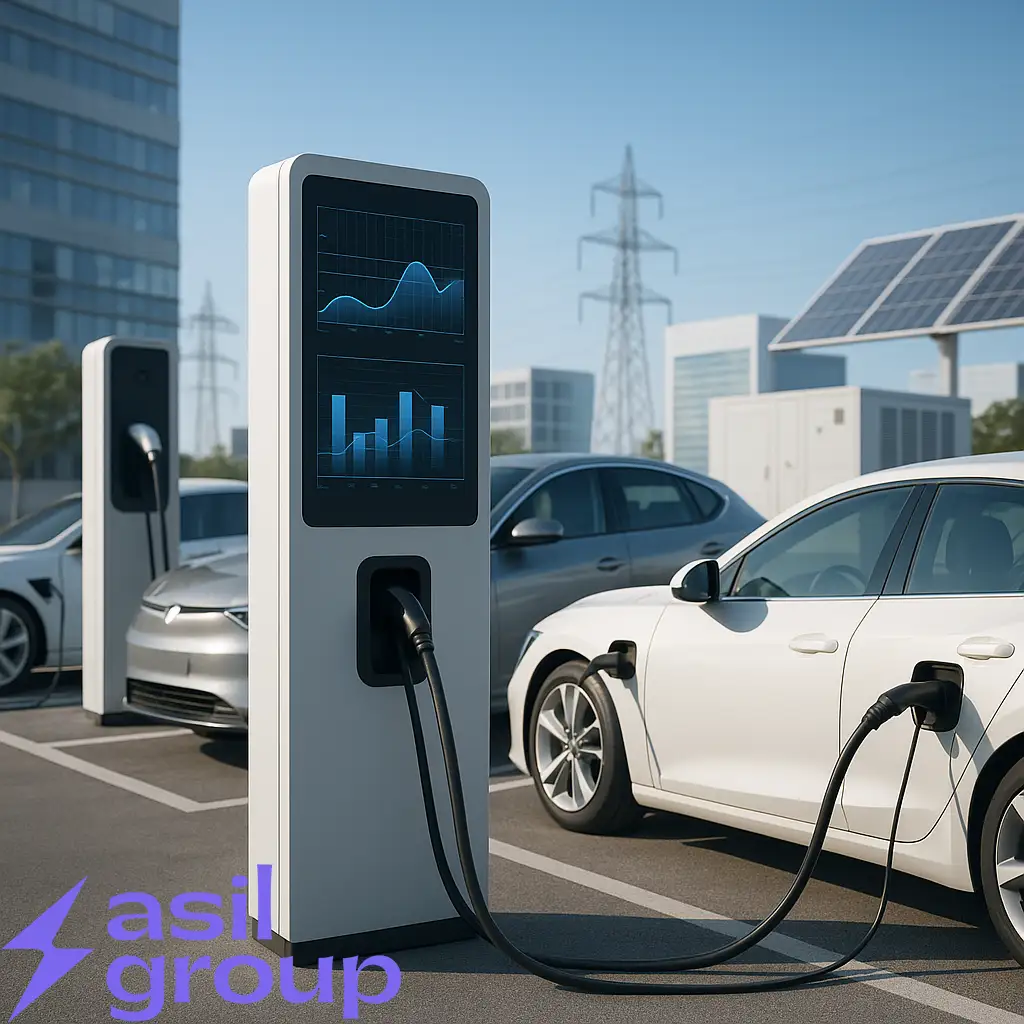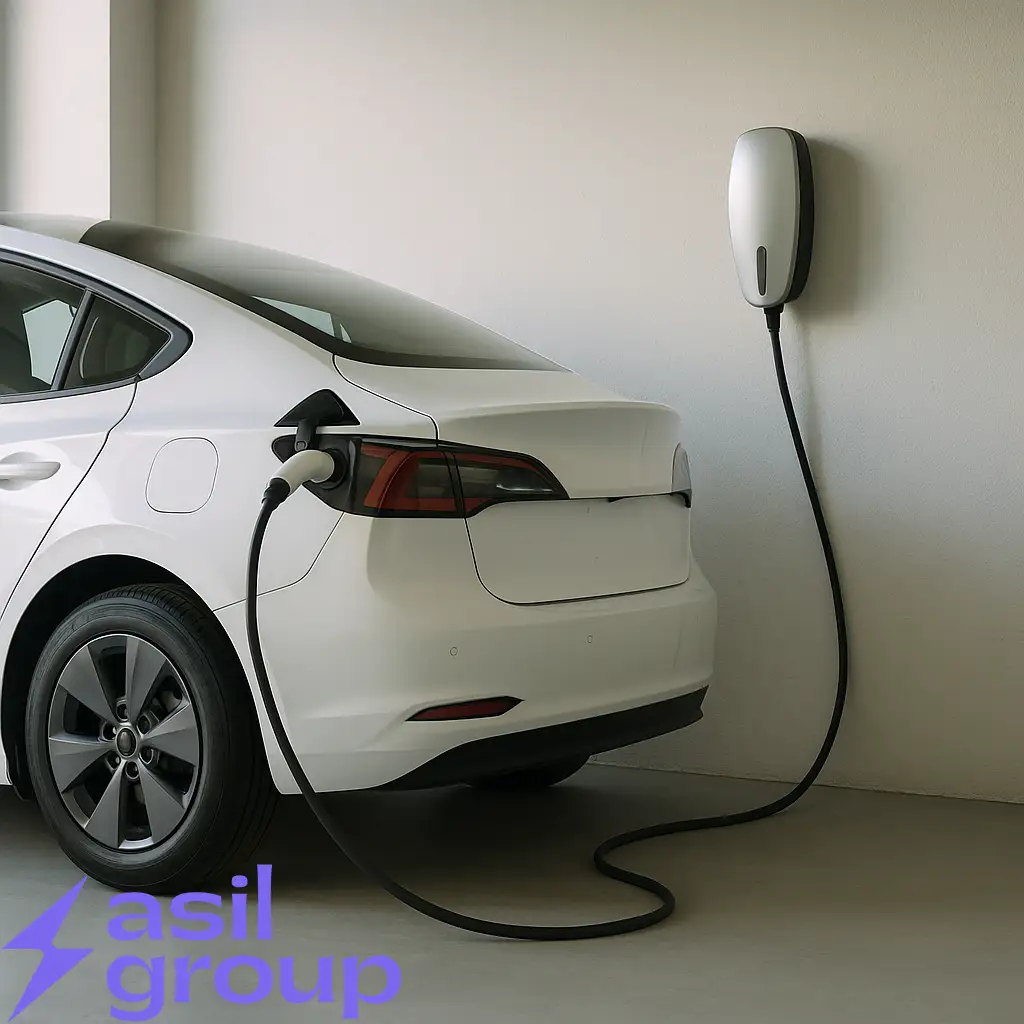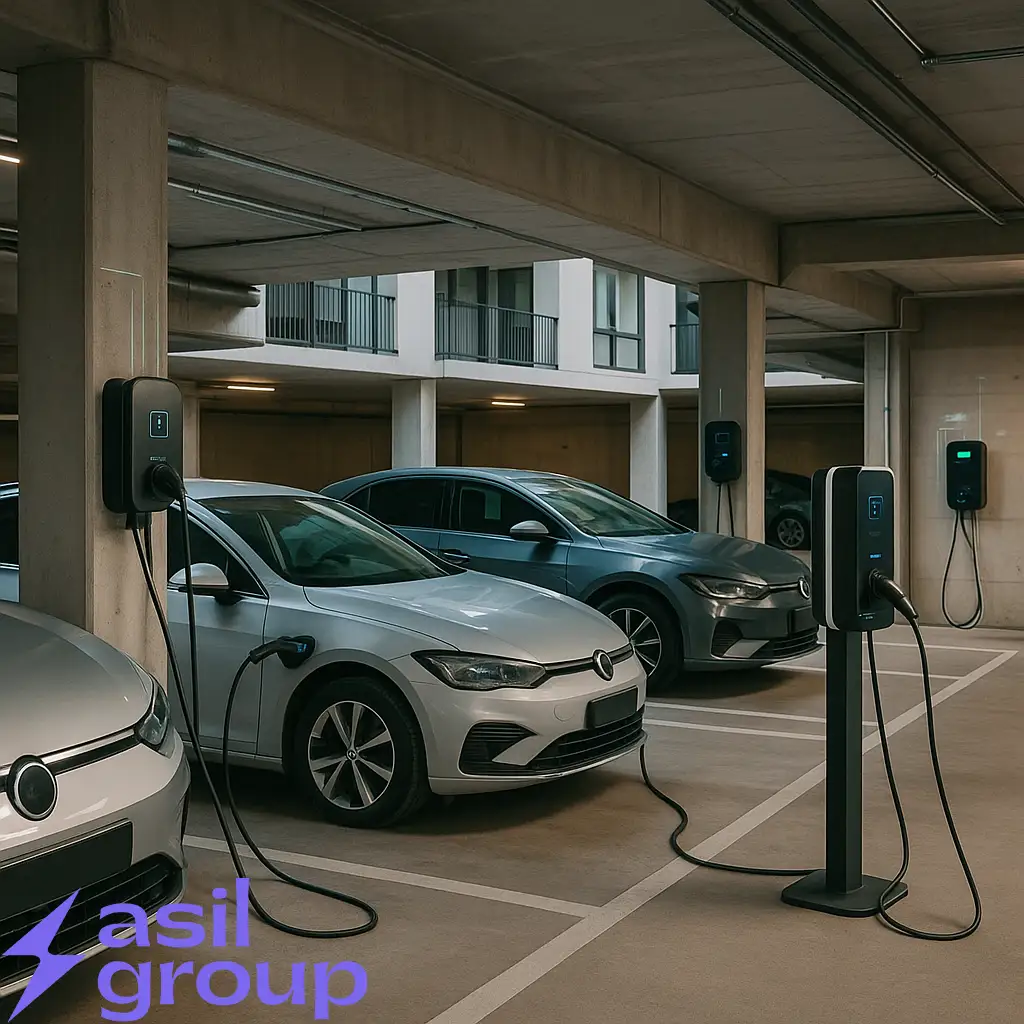
Smart Load Management in EV Charging Networks
Back to all posts As electric vehicle (EV) adoption accelerates globally,

As electric vehicles (EVs) become more popular, having a reliable charging infrastructure is crucial. DC chargers, also known as direct current fast chargers, are essential for EV owners who need quick and efficient charging solutions. This article explores DC chargers for EVs, their benefits, types, installation considerations, and best use cases, with insights from Asil Group.
DC chargers provide high-voltage direct current (DC) directly to the vehicle’s battery, bypassing the onboard charger that converts AC to DC. This allows for much faster charging compared to AC chargers. DC fast chargers are commonly found in public charging stations, highway rest stops, and commercial locations.
DC chargers are a vital part of the EV charging ecosystem, offering fast and efficient charging solutions for various needs. Understanding their benefits, types, and installation considerations helps EV owners and businesses make informed decisions. Asil Group is committed to providing top-tier DC charging solutions to support the growing EV market and ensure a seamless transition to electric mobility.
By choosing the right DC charger and ensuring proper installation, EV owners can enjoy the convenience of quick and reliable charging. As the adoption of electric vehicles continues to rise, these chargers from Asil Group will play a crucial role in supporting the shift to cleaner and greener transportation.
When comparing AC chargers, DC chargers, and Wallbox chargers, it’s important to understand the differences in their features, costs, and ideal use cases. Below is a comprehensive comparison to help you make an informed decision:
| Feature | AC Chargers | DC Chargers | Wallbox Chargers |
|---|---|---|---|
| Power Output | 3.7 kW to 22 kW | 35 kW to 350 kW or more | 7.4 kW to 22 kW |
| Charging Speed | Slower, ideal for overnight charging | Much faster, suitable for quick top-ups | Faster than standard AC, slower than DC |
| Installation Cost | Lower | Higher | Moderate |
| Maintenance Cost | Lower | Higher | Moderate |
| Connector Types | Type 1 (SAE J1772) or Type 2 (Mennekes) | CCS, CHAdeMO, or Tesla Supercharger | Type 1 (SAE J1772) or Type 2 (Mennekes) |
| Ideal Use Case | Home, workplaces, public places | Highway rest stops, urban fast-charging hubs, commercial fleets | Home, workplaces, commercial parking areas |
| Complexity of Infrastructure | Simpler | More complex | Moderate |
| Smart Features | Basic | Basic | Advanced (Wi-Fi, app integration, scheduling) |
| Safety Features | Basic | Advanced | Advanced (overload protection, temperature monitoring) |
| Overall Cost | Low | High | Moderate |

Back to all posts As electric vehicle (EV) adoption accelerates globally,

Back to all posts As electric vehicles (EVs) become more popular,

Back to all posts As electric vehicles (EVs) become more common,

Back to all posts As electric vehicle (EV) adoption accelerates globally,

Back to all posts As electric vehicles (EVs) become more popular,
Asil Group offers cost-effective and eco-friendly EV transportation solutions. We focus on convenience with AC chargers, DC fast chargers, and Wallbox chargers, serving premium locations and enhancing quality of life with smart, sustainable EV charging.
Asil Group offers cost-effective and eco-friendly EV transportation solutions. We focus on convenience with AC chargers, DC fast chargers, and Wallbox chargers, serving premium locations and enhancing quality of life with smart, sustainable EV charging.
Asil Group offers cost-effective and eco-friendly EV transportation solutions. We focus on convenience with AC chargers, DC fast chargers, and Wallbox chargers, serving premium locations and enhancing quality of life with smart, sustainable EV charging.
Phone: +98 21 22221422
Email: [email protected]